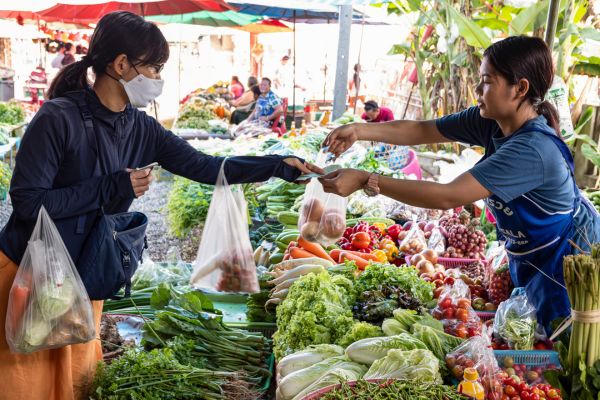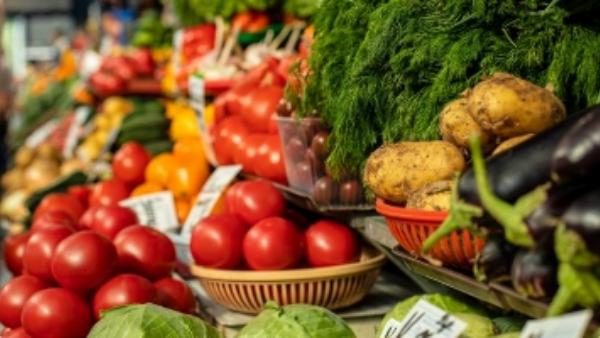Highlights
Director-General

News
New FAO report offers guidance and data on integrating nutrition goals into food trade policies
The State of Agricultural Commodity Markets 2024 looks at global trade flows of nutrients and possible obesity drivers

News
COP16 Desertification Conference: In Riyadh, FAO joins global call for action to combat land degradation
Restoring degraded agricultural lands is crucial for transforming agrifood systems for the benefit of people and the planet

Director-General opens 176th Session of the FAO Council
QU Dongyu highlights the importance of ensuring that FAO is more fit for purpose for the next 20 years and beyond

Interactive story
Climate change is here. But we are fighting back
With the FAO Strategy on Climate Change and its Action Plan, we are taking steps to build a better future for all.

Event
176th FAO Council
The Council is the executive arm of FAO's governing body. Access the agenda, meeting documents and more of the 176th Session.

In Focus
FAO response to global food security challenges
Data analyses, policy recommendations, and actions on the ground.

Publication
Read your way to the COPs 2024
Take a look at a selection of publications presenting FAO’s core work on tackling biodiversity loss, climate change and land degradation.

Event
Our Land. Our Future
Restoration of degraded agricultural land needs political leadership, investment and action. Follow the UNCCD COP16 and see how we can combat desertification.

Data
Monitoring and analyzing food prices
Access the latest information on domestic prices of basic foods in developing countries.
Director-General

Director-General opens 176th Session of the FAO Council
QU Dongyu highlights the importance of ensuring that FAO is more fit for purpose for the next 20 years and beyond
Voices of Impact
The State of Agricultural Commodity Markets (SOCO) 2024 Edition
29/11/2024
The 2024 State of Agricultural Commodity Markets report explores the role of trade in promoting better nutrition. Watch the video and learn how trade is integral to our food systems, moving food from surplus to deficit regions and thus facilitating the flow of important nutrients to countries with insufficient production.
Video
Protecting our land, soil and water systems
01/02/2023
Over 95% of our food is produced on land and all begins with soil and water. We need to work together to sustainably manage these vital resources.
Podcast
FAO Brief - 25 November 2024
25/11/2024
In this episode, FAO’s role in the Global Alliance Against Hunger and Poverty, FAO at COP29; and tackling Antimicrobial Resistance.
Data
Evolution of trade by food category (based on daily per capita energy content), world, 2000-2021
During the last two decades, food trade increased significantly. In 2021, nearly 5 000 trillion kilocalories were traded, more than double the energy traded in 2000. Daily per capita food trade increased from 930 kcal in 2000 to 1 640 kcal in 2021, while the composition of trade changed.
SOURCE: FAO. 2024. The State of Agricultural Commodity Markets 2024 - Trade and nutrition: Policy coherence for healthy diets. Rome. https://doi.org/10.4060/cd2144en
2020 World
31.2%
2010 World
31.5%
In depth

Data
Transparency is key to FAO’s mission
Our new transparency portal shows how and where our resources are used and the results we have achieved. Explore the portal now.

Publication
Medium Term Plan and Programme of Work
The Director-General’s Medium Term Plan (Reviewed) 2022-25 and Programme of Work and Budget 2024-25.

In Focus
FAO Data Lab
The FAO Data Lab for Statistical Innovation modernizes the statistical business process, with a specific focus on emergency contexts, when having access to timely information is very important.
FAO and the SDGs
Hover the mouse over an SDG icon for more information
A world free from hunger and malnutrition where food and agriculture contributes to improving the living standards of all

FAO works with governments and partners to empower some of the world’s most marginalized people to end rural poverty.

FAO helps ensure food security by developing ways of growing food that will work in the future so that millions of people don’t go hungry.

Good health starts with nutrition. FAO sets global standards and works with governments and the private sector to ensure food quality and safety throughout the food chain.

FAO invests in educational systems for rural communities and supports improved access to primary education and school meals in order to create equal opportunities for all and chances of lifelong learning.

FAO supports gender equality in the agricultural sector in an effort to raise levels of nutrition in local communities and improve agricultural productivity.

FAO works with governments to ensure water use in agriculture is made more efficient, equitable and environmentally friendly.

FAO promotes the use of renewable energies and works to ensure access to modern energy services across the food chain.

FAO seeks better economic opportunities for all by investing in sustainable agricultural practices and food systems that reduce inequalities and create decent jobs.

FAO seeks to secure a future for rural communities via investments in transportation, irrigation, food storage facilities and communication technologies.

FAO works with countries and partners to generate employment in rural areas, ensure access to natural resources for the most vulnerable and connect farmers to markets.

FAO works to improve urban healthcare, water quality and rethink city region food systems to help deter the negative effects of sprawling urbanisation.

FAO coordinates major global initiatives and projects to tackle food waste and loss, partnering with international organisations, the private sector and civil society.

FAO supports countries in responding to the threats of climate change by providing advice, data and tools for better agricultural policies and practices.

FAO, in partnership with governments and fishing communities, implements best practices in fisheries to ensure our oceans are protected as a means of livelihoods.

FAO promotes sustainable approaches to natural resource management and supports endeavours that promote a balance between conservation and development initiatives.

FAO plays a critical role in peacebuilding, restoring rural livelihoods, building resilience and participatory approaches to policymaking.

FAO acts as a neutral policymaking forum and develops partnerships with all concerned with food and agriculture to ensure a world free from hunger.





















